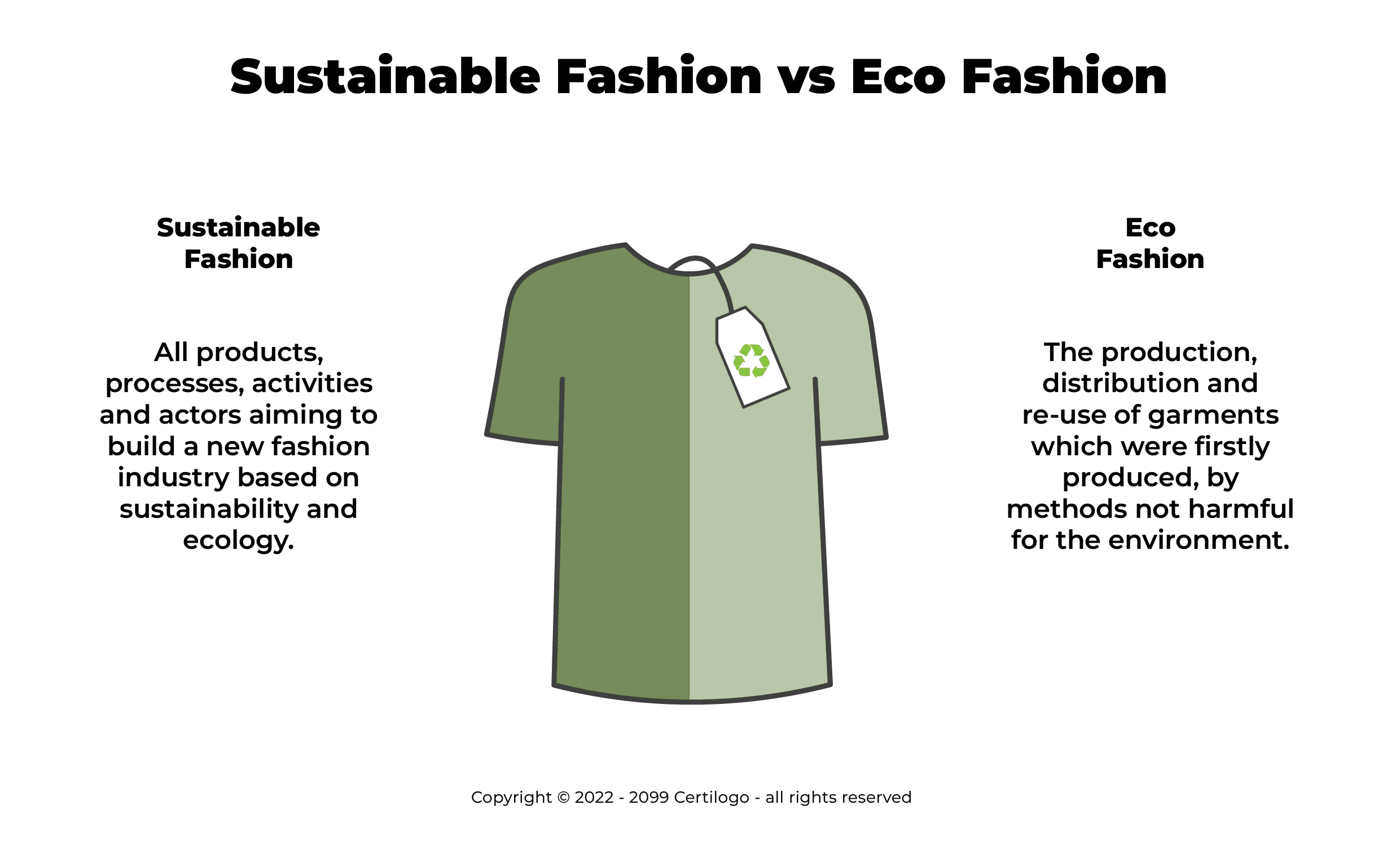Exactly How Cape Town Sustainable Fashion is Shaping Eco-Conscious Buying
Exactly How Cape Town Sustainable Fashion is Shaping Eco-Conscious Buying
Blog Article
Remain Ahead of the Curve by Exploring Innovative Fashion Fads
In a market as dynamic as style, staying in advance involves more than simply complying with existing patterns-- it requires an exploration of technology. The convergence of innovation and fashion advertises a new age of customer interaction.

Welcoming Smart Textiles
Over the last few years, the fashion business has actually observed a transformative change with the assimilation of smart fabrics, an advanced advancement that mixes modern technology with textile. This advancement stands for not just a fusion of aesthetics and performance however likewise a considerable leap towards sustainability and personalization in vogue. Smart textiles, additionally known as e-textiles, installed advanced electronic devices such as sensing units and conductive strings within the textile, allowing garments to engage with the atmosphere or the wearer.
These textiles are designed to monitor physical criteria, such as heart price or body temperature level, supplying real-time health and wellness analytics. Beyond health applications, clever fabrics are likewise being used for adaptive clothes, which can change color or pattern in reaction to ecological stimulations, thus providing a dynamic fashion experience.
Additionally, the growth of energy-harvesting textiles that generate power from activity or sunlight is leading the way for self-dependent wearable modern technology. This advancement is attracting environmentally aware consumers and designers intending to minimize the ecological impact of style. As research and growth in this field advance, smart fabrics are expected to come to be increasingly prevalent, improving the landscape of contemporary style with their multifunctional abilities.
The Rise of 3D Printing
Changing the manufacturing landscape, 3D printing has actually become a game-changer in the garment industry. This sophisticated technology has actually enabled developers to push the limits of creativity, creating elaborate and personalized garments that were previously unbelievable. By leveraging digital style and additive production, 3D printing helps with the production of complex geometries and patterns, enabling designers to trying out new structures and frameworks.
A noteworthy benefit of 3D printing in style is its ability to generate on-demand, lessening waste and reducing supply requirements. This efficiency not only enhances manufacturing procedures but also enables fast prototyping, making it possible for designers to bring their visions to life in a shorter timeframe. In addition, 3D printing sustains customization somewhat unequaled by typical methods, providing distinct styles and individualized fits customized to specific customer choices.
The surge of 3D printing has also democratized fashion, making it available to emerging designers who can now fabricate high-grade items without significant economic investment in traditional production framework. As modern technology proceeds to breakthrough, the fashion business is positioned to harness the complete capacity of 3D printing, checking out new materials and techniques that will unquestionably redefine exactly how fashion is conceived and produced.
Lasting Style Advancements
As the apparel industry grapples with journalism need for ecological obligation, sustainable fashion technologies have actually emerged at the forefront of transformative change. The expanding understanding of environmental impact has actually fueled a shift in the direction of even more eco-conscious practices and products. Brand names and developers are now focusing on sustainability, integrating methods that decrease waste and lower carbon footprints.
One significant growth is the increase of circular style, which emphasizes recycling and upcycling to expand the lifecycle of garments. This technique not only minimizes waste but additionally motivates consumers to embrace a more mindful approach to apparel usage. Additionally, the use of lasting materials, such as natural cotton, hemp, and recycled polyester, has actually gotten traction. These products call for less water and power during manufacturing, considerably decreasing ecological influence.
Another innovation depends on the adoption of cutting-edge dyeing techniques that use natural dyes or waterless processes, consequently minimizing the huge quantities of water and chemicals generally utilized in fabric dyeing. Moreover, innovations in biotechnology have actually caused the production of lab-grown natural leather and fabrics, providing environmentally friendly and cruelty-free options to traditional products. Via these introducing initiatives, the fashion business is making meaningful strides towards a much more sustainable future.

Tech-Integrated Garments
Tech-integrated clothing represents a groundbreaking blend of style and innovation, reshaping just how individuals communicate with their clothes. This innovative domain name is marked by the incorporation of wise textiles and ingrained digital components, that site boosting both performance and aesthetic allure. From physical fitness trackers embedded in sports apparel to heated coats controlled using smart device apps, tech-integrated garments provides consumers unmatched his comment is here convenience and flexibility.
Pioneering brand names are driving this trend, concentrating on developing garments that react to ecological stimulations or individual commands. For example, some garments can alter color or pattern in action to temperature level shifts, while others incorporate biometric sensors to monitor health metrics like heart price or stress and anxiety degrees. The seamless combination of innovation into fabrics additionally encompasses environmental sustainability, with efforts to establish self-cleaning fabrics or garments that readjust to weather problems, therefore reducing the need for numerous layers.
Additionally, the development of wearable technology is not simply limited to clothing yet prolongs to accessories like watches and glasses, additional broadening the scope of tech-integrated style. As the industry remains to introduce, the capacity for modification and customization in clothing grows, providing consumers one-of-a-kind, tech-enhanced fashion experiences that deal with their specific requirements and preferences.
Future of Virtual Fashion
In recent times, the future of online fashion has become a transformative pressure within the market, leveraging innovations in digital technology to redefine just how fashion is developed, experienced, and consumed. By incorporating augmented truth (AR), virtual truth (VIRTUAL REALITY), and 3D design devices, designers can now craft immersive and interactive experiences that transcend typical fashion borders. Digital fashion enables the development of garments that exist solely in digital settings, offering limitless opportunities for development without the constraints of physical production.
This digital change not just presents chances for imaginative expression but likewise addresses sustainability worries inherent in conventional style techniques. Cape Town Sustainable Fashion. By eliminating the requirement for physical sources, digital style reduces waste and reduces carbon footprints. Moreover, the surge of virtual fashion aligns with the boosting customer need for one-of-a-kind and customized experiences, as online garments can be personalized and customized to private choices with convenience

Verdict
The style industry's future hinge on the combination of ingenious technologies and lasting methods - Cape Town Sustainable Fashion. Smart textiles and tech-integrated garments are enhancing performance, while 3D printing offers possibilities for customization and waste reduction. Lasting fashion, via environmentally friendly products and round methods, shows a commitment to environmental stewardship. In addition, virtual fashion is positioned to redefine customer interactions. Adapting to these fads is important for brand names looking for to remain competitive and pertinent in this rapidly progressing landscape.
In current years, the style sector has actually witnessed a transformative change with the assimilation of smart textiles, a sophisticated technology that blends technology with fabric.As the fashion market grapples with the pressing requirement for ecological duty, lasting style advancements have actually emerged at the forefront of transformative modification.In recent years, the future of digital style has actually arised as a transformative pressure within the sector, leveraging innovations in electronic modern technology to redefine just how style is developed, experienced, and taken in. The surge of digital style lines up with the boosting consumer demand for customized and distinct experiences, as online garments can be personalized and tailored to individual choices with convenience.
The style market's future lies in the integration of sustainable practices and cutting-edge modern technologies.
Report this page